"It Makes Us Feel Alive Again": This Therapist Is Sharing The Number One Coping Skill She Recommends To Her Patients, And All It Takes Is Your Favorite Nostalgic Song
I've always been a gal who's enjoyed blasting early 2000s hits; nothing heals my soul quite like listening to Natasha Bedingfield's "Unwritten" while doing mundane tasks around my home.
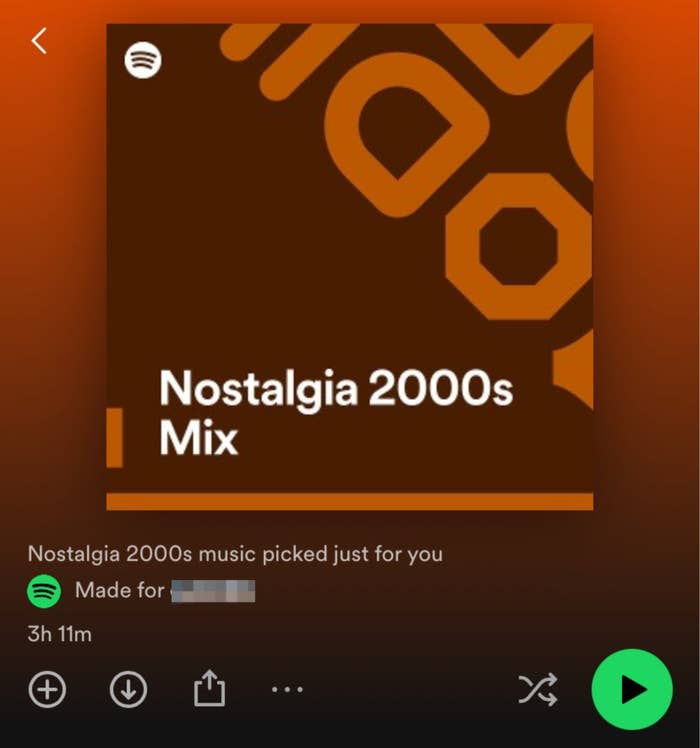
If you're wondering, my '90s/2000s playlist is aptly titled "Songs To Sing Drunk At Karaoke."
Well, it turns out there's an actual name for the jolt of happiness we get from nostalgic music. It's called neural nostalgia and is a therapist-approved coping skill, according to Nikki Roy, a licensed therapist who posted a now-viral video to TikTok about the phenomenon that's garnered over one million views.
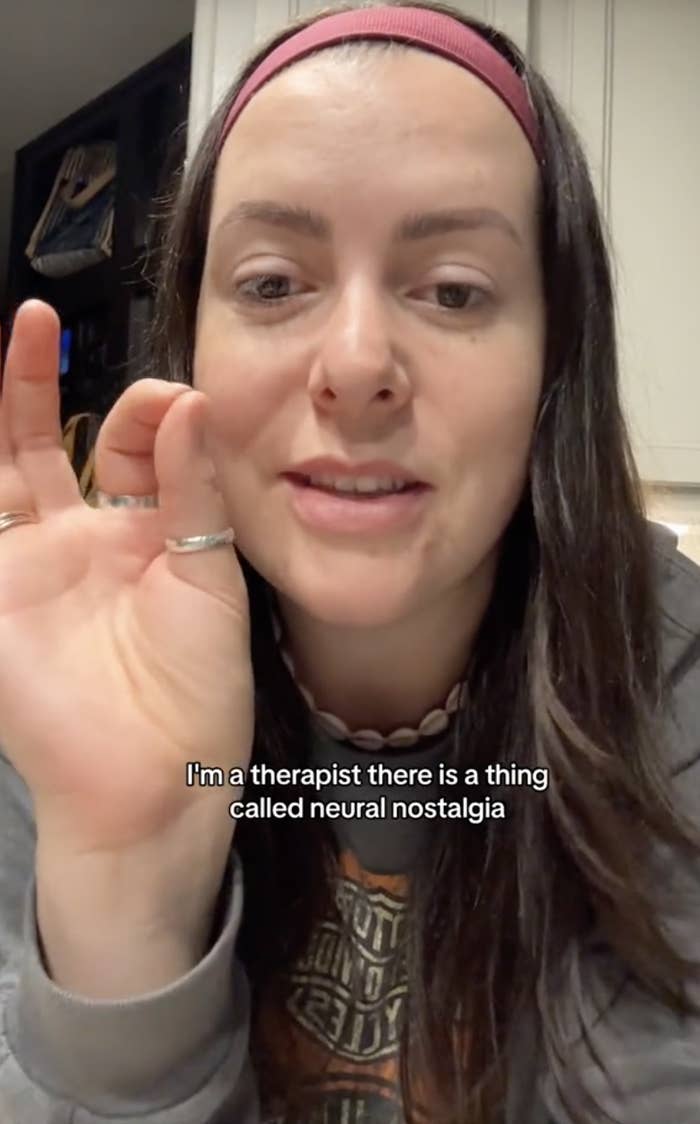
In her video, Nikki briefly explains the power of neural nostalgia on our adult brains. "Researchers are actually finding that the music we listened to as teenagers bind to our brains differently than anything we're ever going to hear as adults," she says.
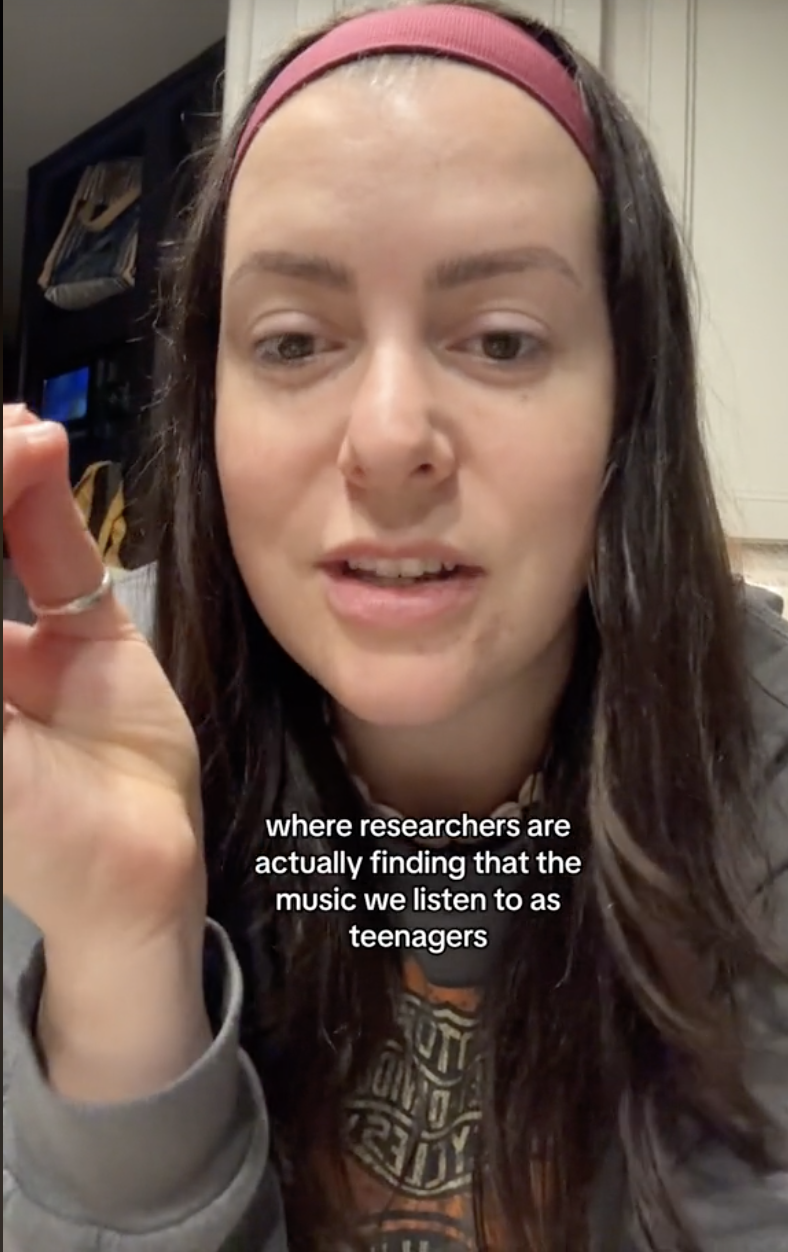
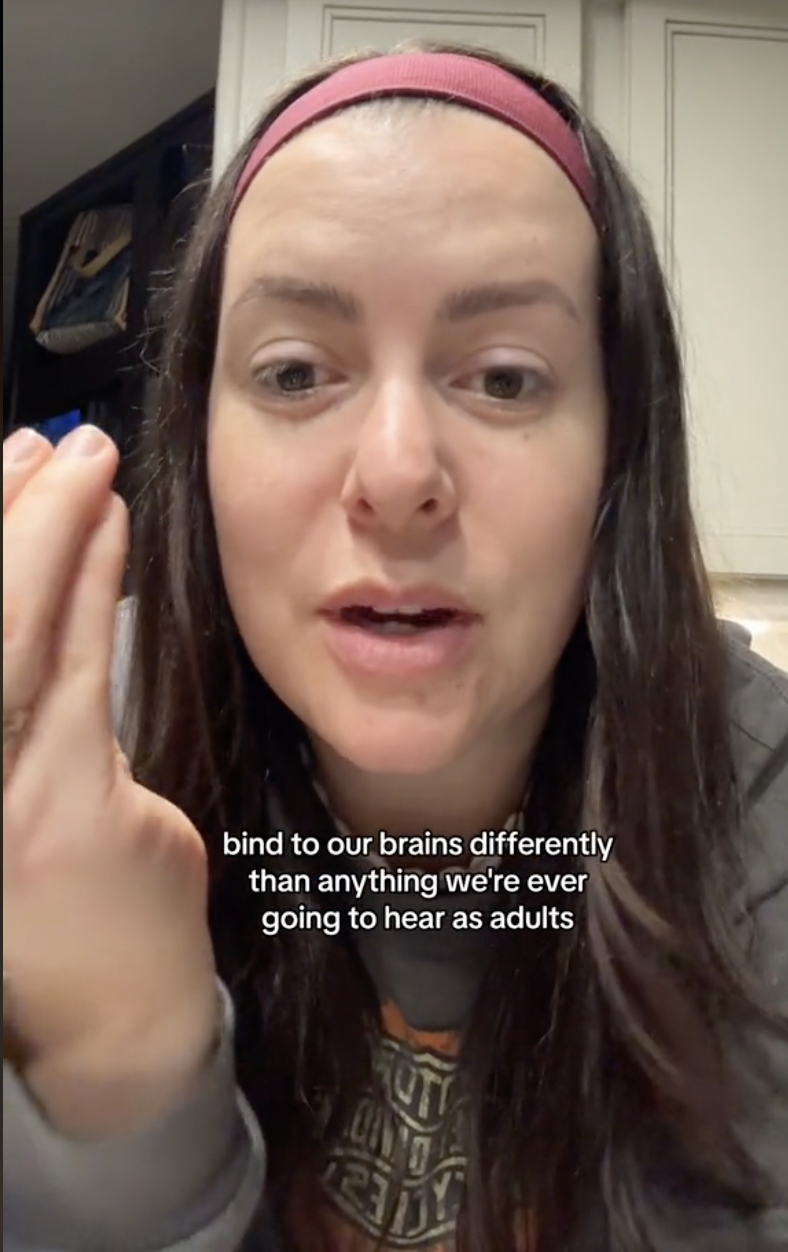
@nikkiroy.collection / Via tiktok.com
She explains that "one of the best coping skills," and something she still does herself, is listening to the music you once loved as a teen.
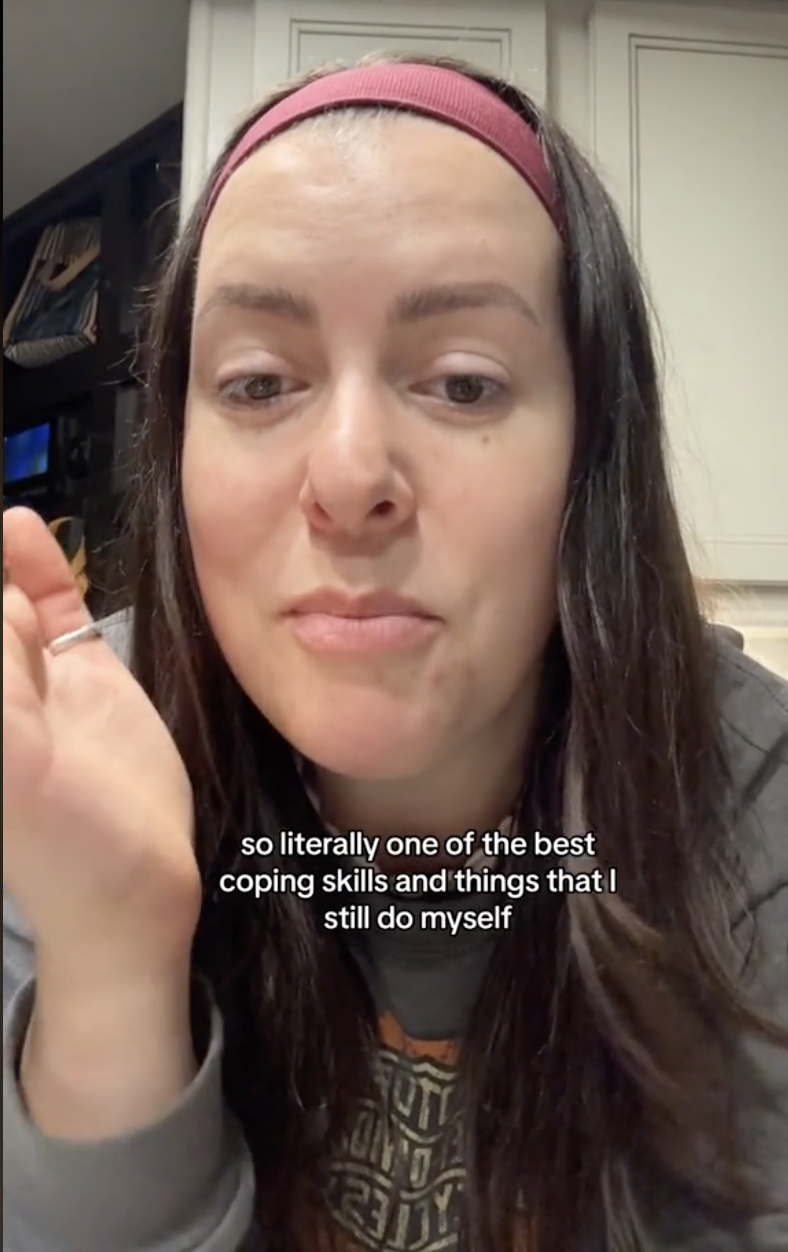
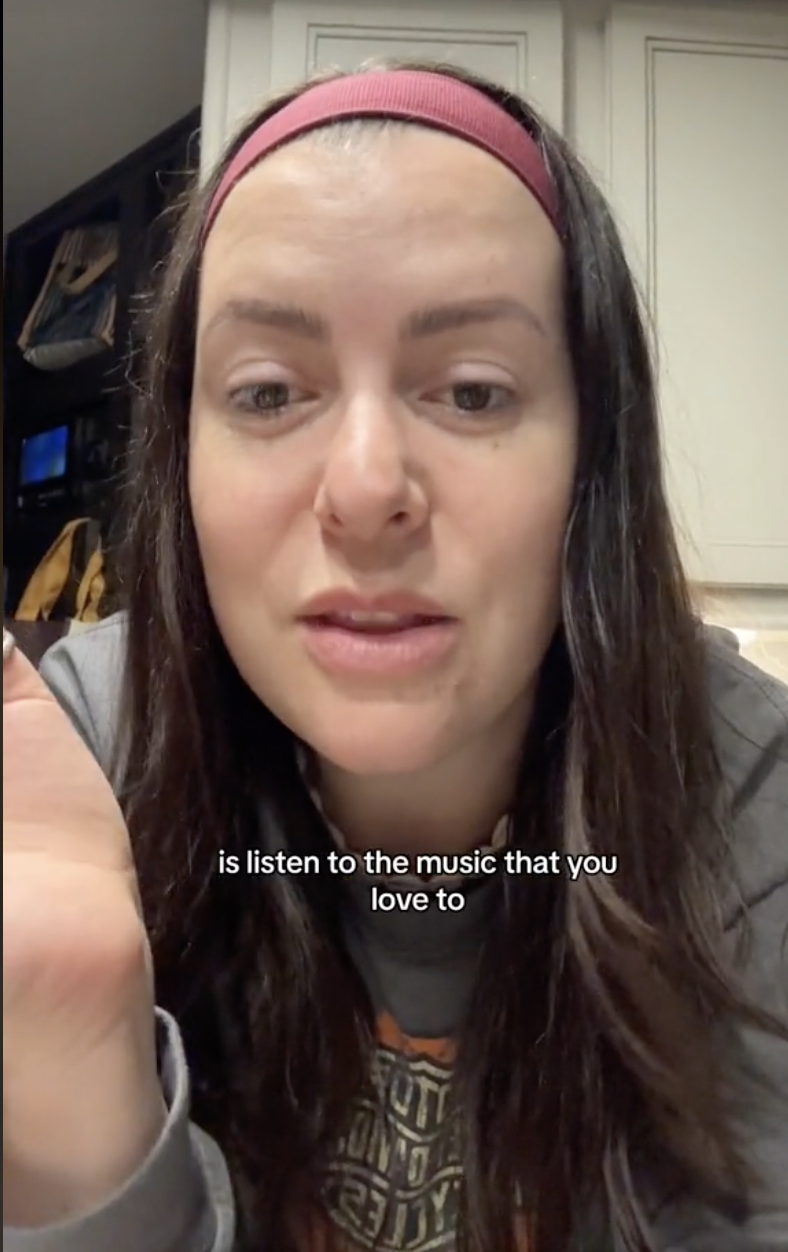
@nikkiroy.collection / Via tiktok.com
"If that's, like, punk rock, Pitbull, whatever — listen to that because it actually helps us," she says. "It makes us feel alive again."
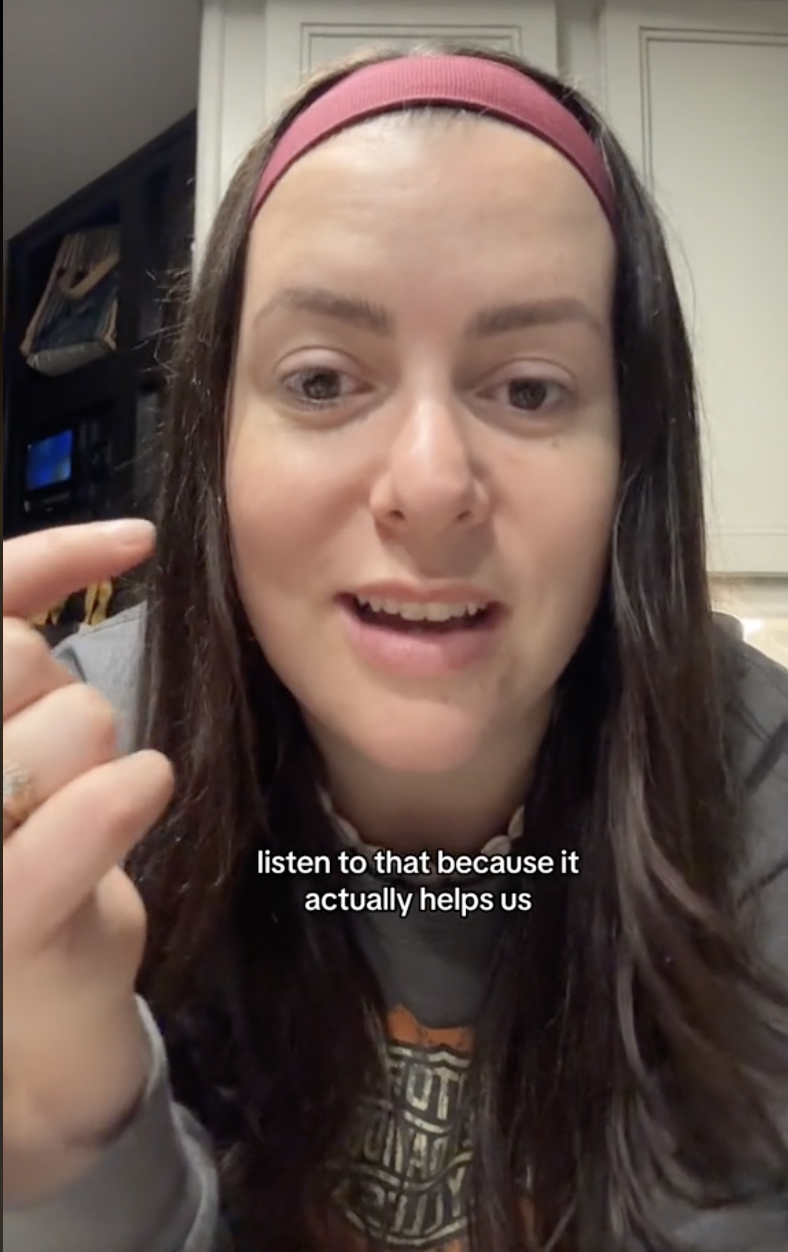
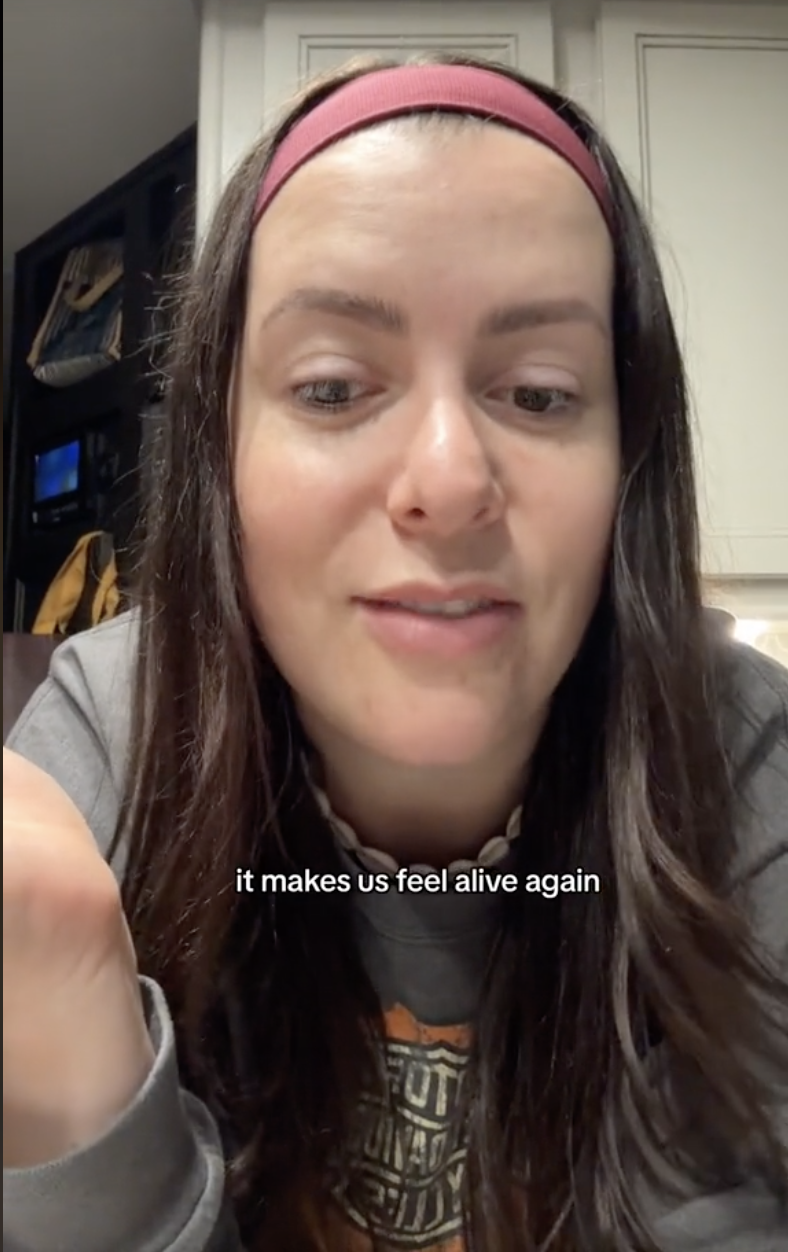
@nikkiroy.collection / Via tiktok.com
Over 3,000 commenters couldn't help but relate to Nikki's video and expressed their joy when listening to nostalgic hits from their youth. "I am probably my happiest when in the car blasting early 2000s," one user wrote.

"So that's why I still listen to the same music 15 years later," someone else wrote. Same, TBH.
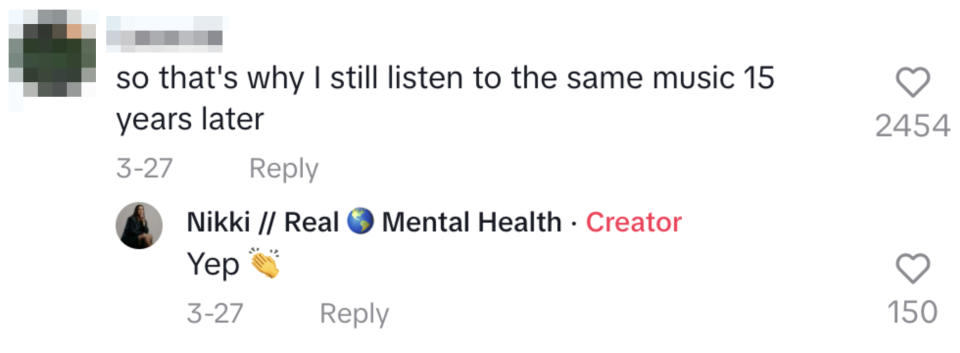
People even began sharing their go-to nostalgia songs. Avril Lavigne's "I'm With You," a song that forever altered my brain chemistry, was mentioned.
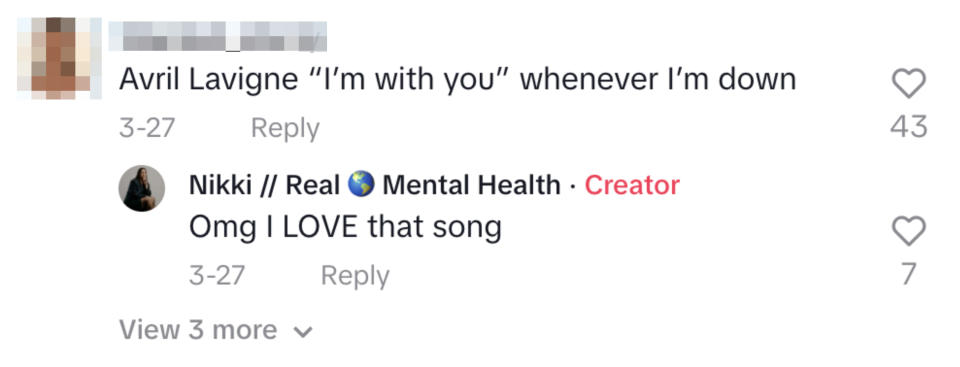
To the joy of every former emo kid, My Chemical Romance and Taking Back Sunday were also given a shout-out.
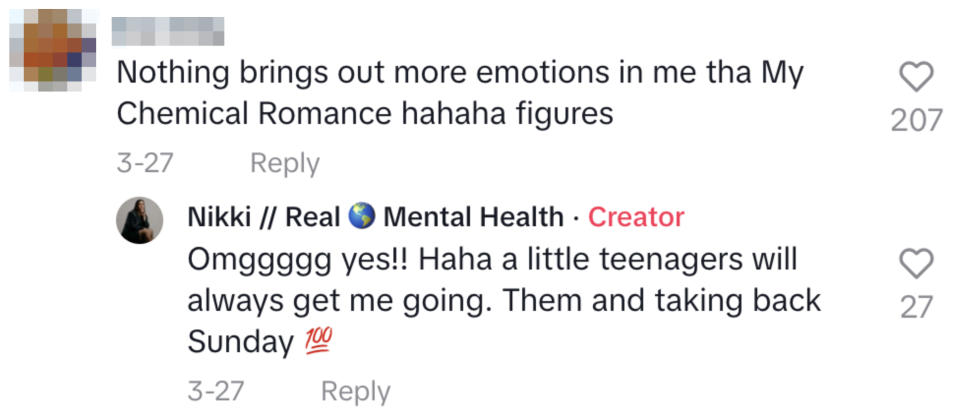
Let's take a moment for "Boom Boom Pow" by the Black Eyed Peas.

Other therapists even weighed in with their recommendations. "I'm a therapist and told a client it's impossible to be sad while listening to T-Pain," someone wrote.
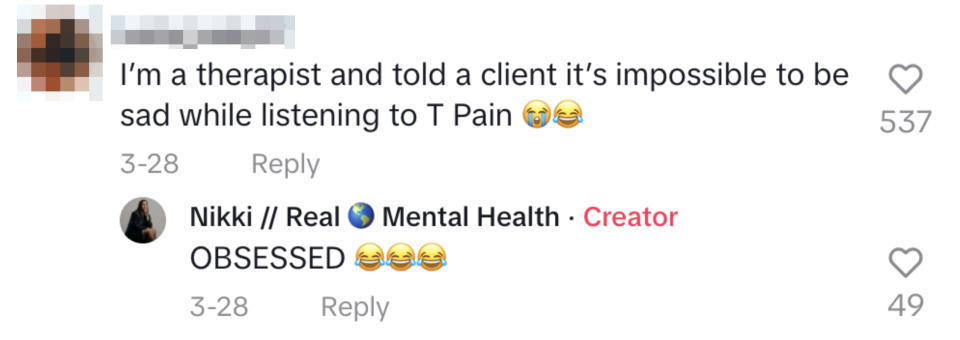
To learn more about neural nostalgia, we reached out to Nikki, a practicing licensed therapist for the past four years and founder of The Wellness Club. "Neural nostalgia is more than just a cultural phenomenon where we enjoy the music of our teenage years," she told BuzzFeed, "Researchers have uncovered evidence to suggest that it's a neuronic command, meaning that singing and dancing along to songs we bonded to in our adolescence can activate our premotor cortex, prefrontal cortex, synchronize our neurons, and trigger emotions."
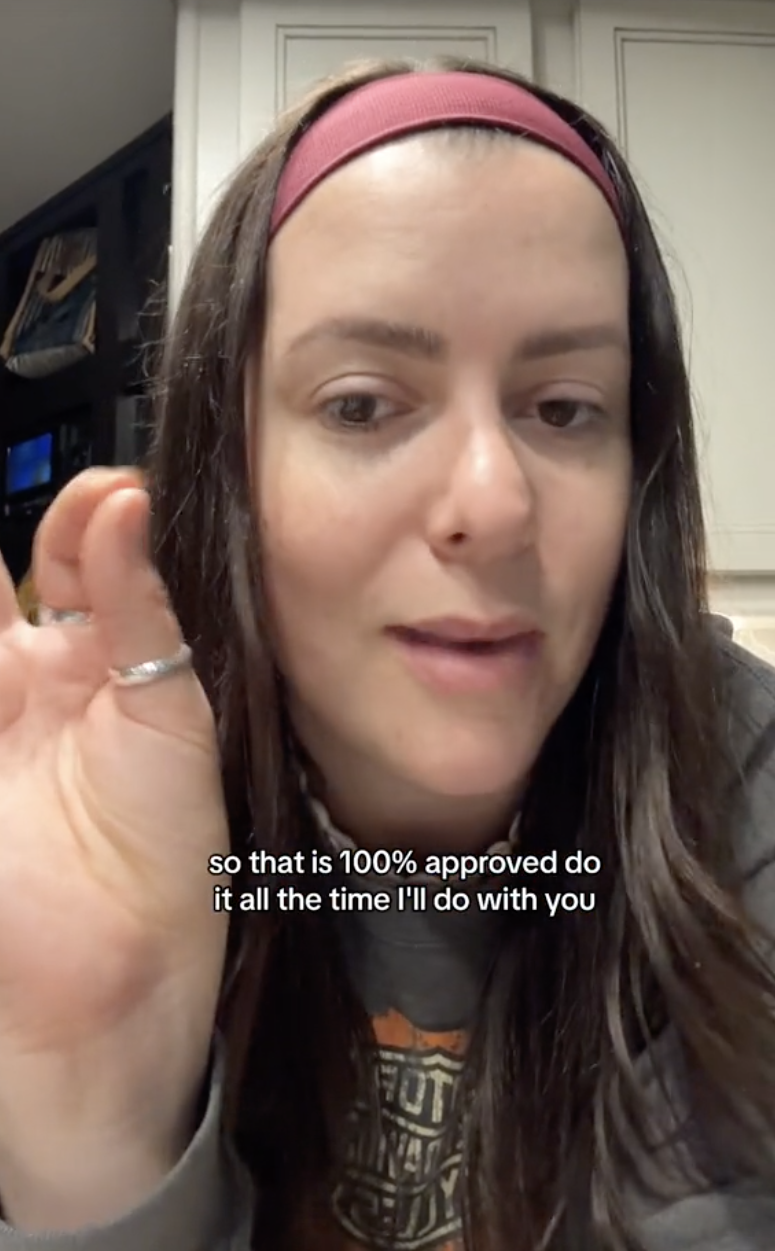
According to Nikki, the songs we bonded to, specifically from the ages of 12–22, when we undergo massive development, create a "firework show" in our brains. "When we make connections to a song, we also create a strong memory trace that embeds with emotion. This can happen across the lifespan, but because of the rapid brain development and hormone surges during adolescence, the music can become fundamentally intertwined," she explained.
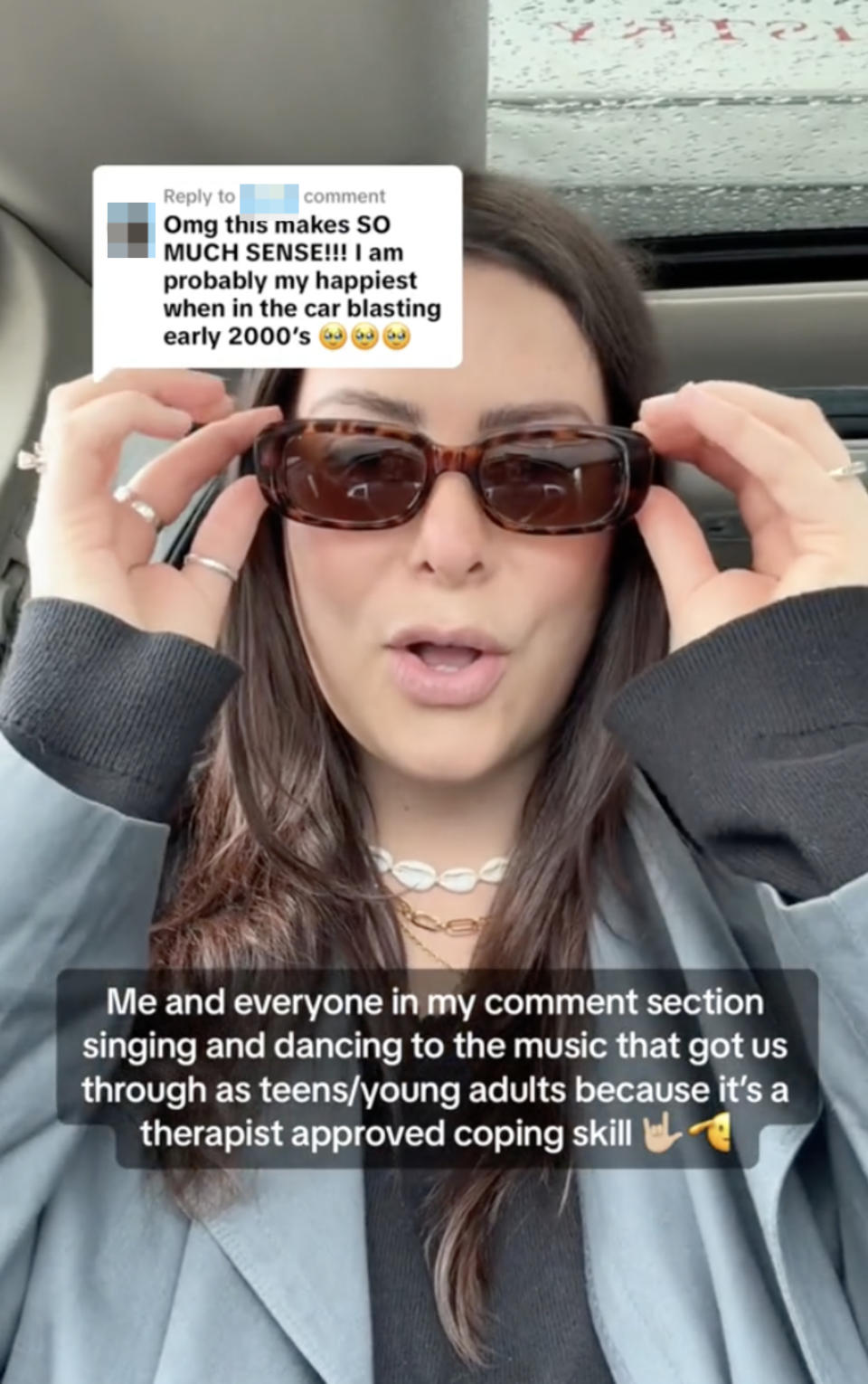
Like many commenters on Nikki's video, I had a major "a-ha" moment while watching. She further explained that when listening to our favorite music from this critical time in our lives, "our bodies will experience surges of dopamine, serotonin, and oxytocin, which will increase optimism, inspiration, meaning in life, memory, emotion regulation, and social connectedness."
Personally, my early 2000s playlist has gotten me through many anxious episodes and pushed me through those days when I'm feeling extra unmotivated (so, yes, it's more than just my karaoke playlist).
Some commenters, however, pointed out that this music could be triggering, particularly if they struggled with trauma or their mental health in adolescence. When we asked Nikki if nostalgic music could potentially make us feel worse, she told us, "Music can bring back memories, emotions, and bodily senses of times in our lives that we did not feel safe. Each individual person's experience with this will be different, and it's important to trust your own intuition with what you feel safe and regulated with."
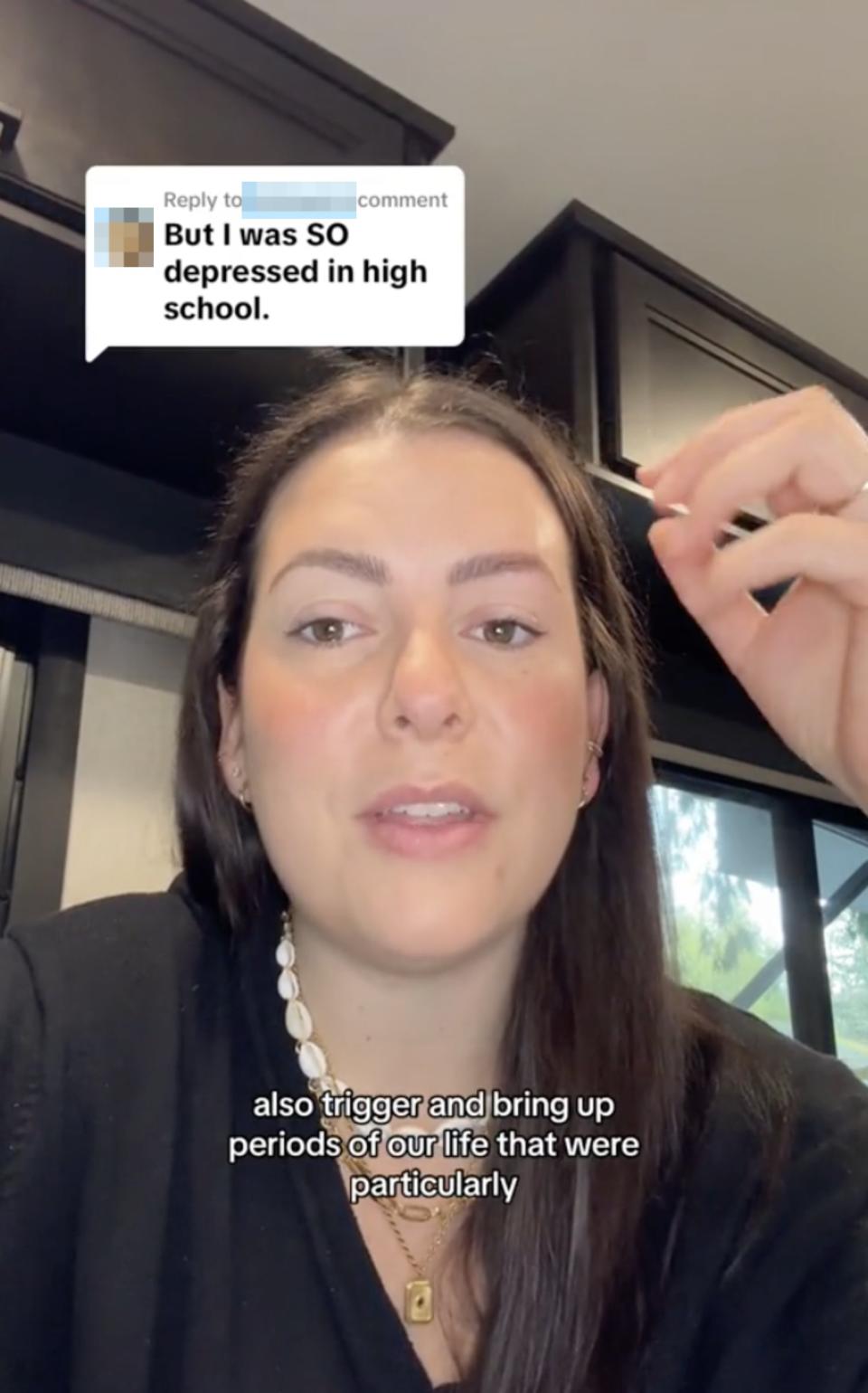
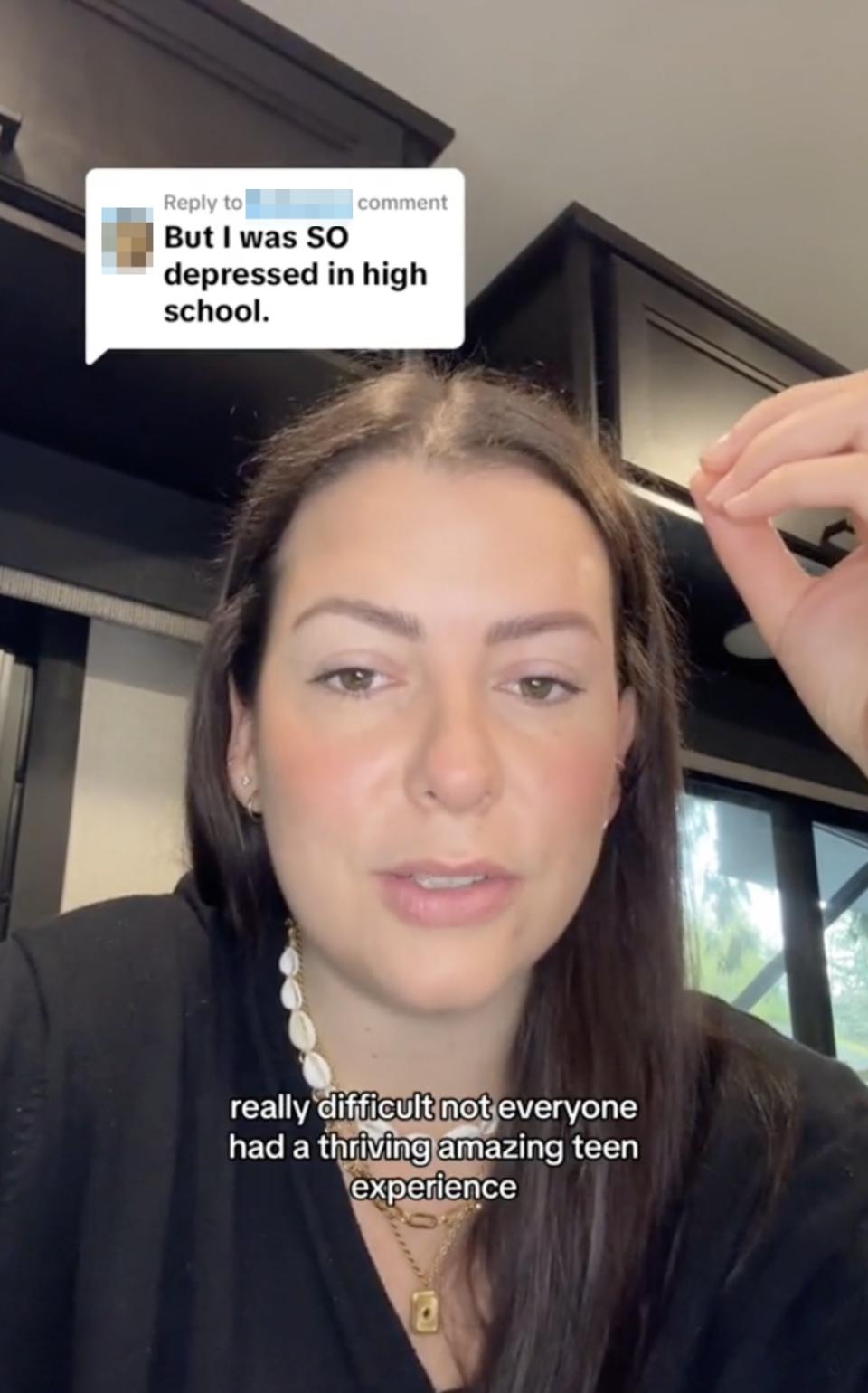
@nikkiroy.collection / Via tiktok.com
But that doesn't necessarily mean we should avoid emotional or sad songs at all costs. "Some questions I have received are 'Does listening to sad music just make you sad?' And while that can certainly be true, many people benefit from listening to sad music or music that got them through hard times," Nikki mentioned. "This can allow us permission to feel our emotions, relate to the artist, and feel a compassionate lense of common humanity."
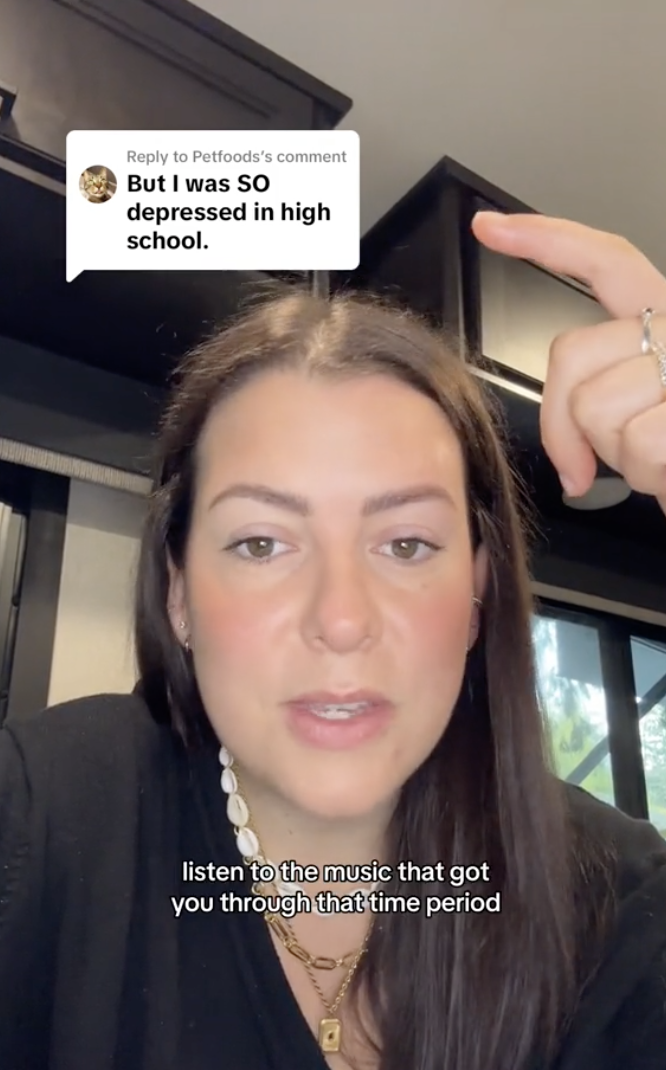
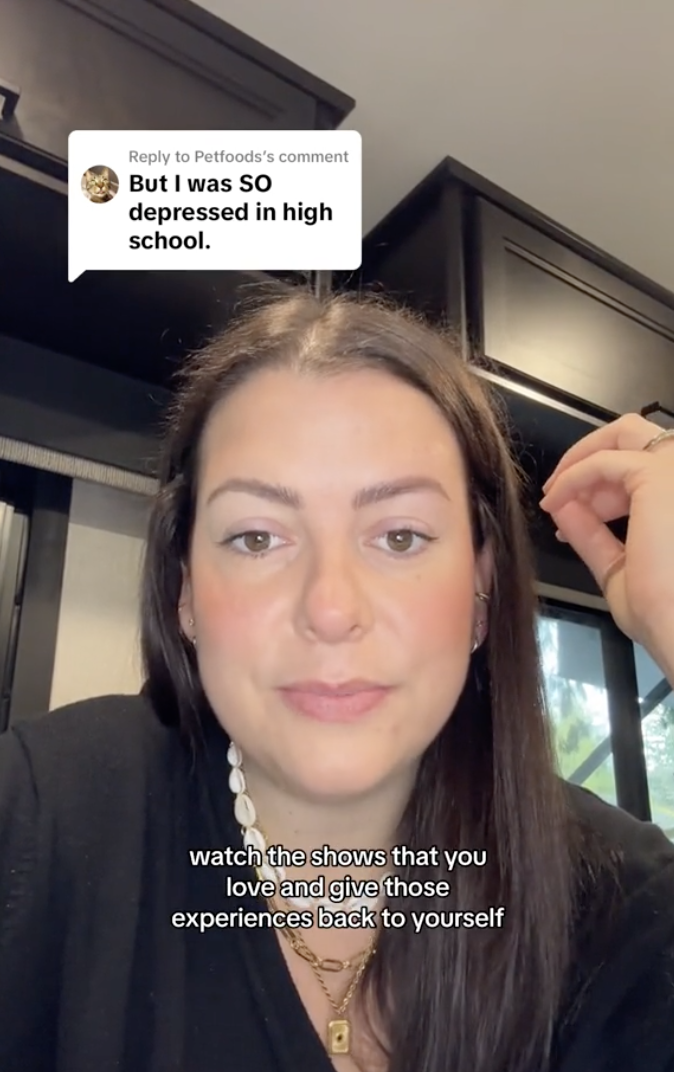
@nikkiroy.collection / Via tiktok.com
If you're ready to make your own nostalgia playlist, Nikki suggests making a few for different emotions and periods in your life. Then, just pull them up whenever you need that serotonin boost to soothe yourself or find motivation. "When using neural nostalgia as a coping mechanism, most people feel more regulated, calm, and connected to themselves and their little selves," Nikki said when speaking about the benefits of listening to these playlists.
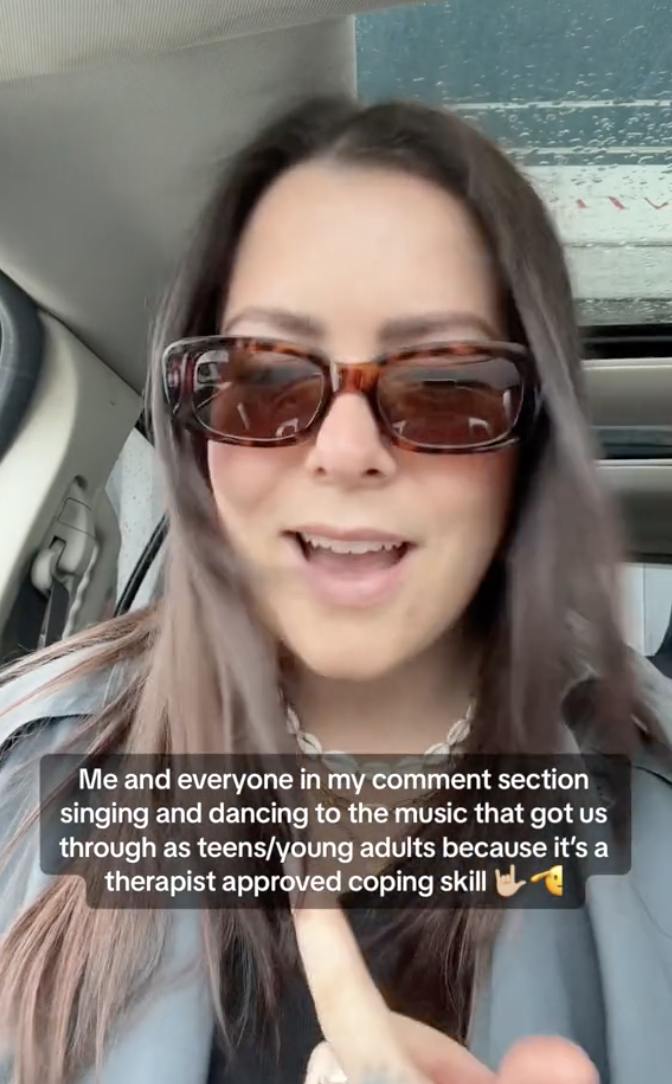
"They can stop and prevent anxiety attacks, get out of a paralyzation or slump, and feel capable of completing their tasks. This music can shift us out of difficult emotions like anger, anxiety, and sadness to joy, calm, and relief."
Now that I've (vulnerably) told you all about my 2000s playlist, I'm curious: What are some of your go-to nostalgia songs when you're feeling low or need a little bit of motivation? Let us know in the comments!
And if you want to see more content all around mental health, you can follow Nikki on TikTok and Instagram.

 Yahoo Sport
Yahoo Sport 



































































